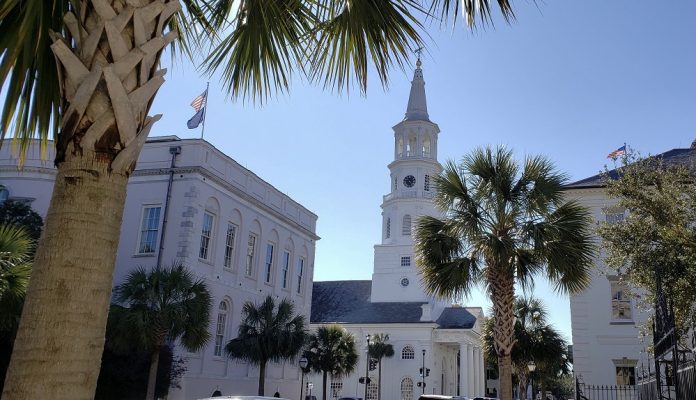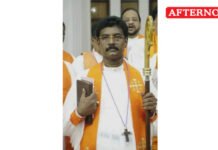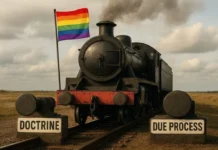Parishes in the Anglican Diocese of South Carolina received welcome news today in their ongoing court battle with the Episcopal Church.
Circuit Court Judge Edgar W. Dickson entered an order this morning finding that no parish acceded to the church’s Dennis Canon – a denominational rule dating from 1979 that all property is held in trust for the Episcopal Church. If the judge’s order is ultimately upheld by the South Carolina Supreme Court, it would mean that trustees from 29 local parishes – not the national church – hold title to the disputed properties.
“This is the ruling for which we have been praying,” wrote Chancellor Ben A. Hagood, Jr. and Chancellor Emeritus W. Foster Gaillard of St. Philip’s Church in Charleston, one of the churches involved in the litigation. “For today’s ruling, we give thanks to God.”
A majority of members in 49 churches in total voted to sever ties to the Episcopal Church and remain affiliated with the diocese following disputes over the redefinition and reinterpretation of Scripture. Then-Presiding Bishop Katharine Jefferts Schori removed South Carolina Bishop Mark Lawrence from Episcopal office, based upon an Episcopal Church House of Bishops Disciplinary Board signing a “Certificate of Abandonment of the Episcopal Church”.
The Disciplinary Board stated that Lawrence had failed to “safeguard the property and funds of the Church” by signing quitclaim deeds to every parish “disclaiming any interest in the real estate”.
Litigation between the diocese and the Episcopal Church centered on who held title to parish properties and the deed to Camp St. Christopher, and controlled diocesan marks and intellectual property. Judge Dickson ordered that the deed of Camp St. Christopher – which is titled to the Trustee Corporation, not the denomination – is controlling.
The Circuit Court judge was tasked with writing an order based on a series of five separate opinions handed down in 2017 by justices of the South Carolina Supreme Court. The order denies a petition from Episcopal Church attorneys to appoint a Special Master for the transfer of property from departing Anglicans and to the Episcopal Church. The Circuit Court order found that the Federal Court has exclusive authority to decide all issues relating to trademarks, including the diocesan name and seal.
The Circuit Court order will likely be appealed to the state Supreme Court by attorneys representing the Episcopal Church. The composition of the high court has changed since the 2017 opinions were handed down.
The Diocese of South Carolina was the fifth U.S. diocese to vote to depart the national church. Based on a review of yearly audited financial statements, attorney and Episcopal Church blogger A.S. Haley estimated in 2017 that the denomination and its dioceses had already spent in excess of $40 million in litigation expenses in disputes with departing Anglicans. In December 2011 the Diocese of Quincy (Illinois) won a legal dispute on property ownership over the Episcopal Church that was subsequently upheld on appeal. In May of this year the Supreme Court of Texas ruled in favor of the Diocese of Fort Worth, which had departed the Episcopal Church in 2008.
In June 2017, the Diocese of South Carolina formally joined the Anglican Church in North America. The diocese counts 52 member churches and more than 20,000 members.




Wonderful news.
The loss of these historical churches will hit TEC hard.
To our Lord, the appearance or wealth of a congregation is irrelevant, but TEC worships the outward appearance. They will fight like the devil (intentional pun) to overturn this decision, but it looks like their cause is doomed.